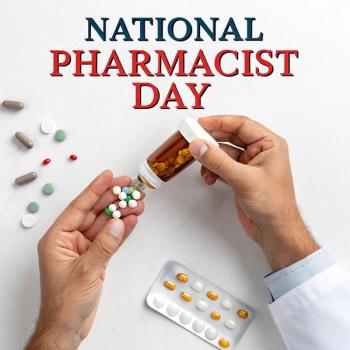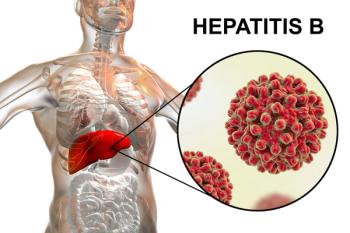
President of the Pennsylvania Pharmacists Association, John DeJames, shared his organization’s goals for advancing the pharmacy profession.

President of the Pennsylvania Pharmacists Association, John DeJames, shared his organization’s goals for advancing the pharmacy profession.

Gestational diabetes significantly impacts postpartum cardiovascular health, especially in women over 35, highlighting the need for timely interventions.

Focused on lowering costs and saving patients money, the plan is focused on drug prices, insurance premiums, and some of health care’s largest companies.

To celebrate National Pharmacist Day, regonized every year on January 12, Meagan Brown, PharmD, BCACP, discussed the current state of nationally recognizing pharmacists as clinical providers.

This marks the disease’s very first treatment option for pediatric patients looking to manage Menkes and its symptoms.

The current understanding regarding artificial intelligence (AI) in pharmacy curricula is necessary to equip future pharmacists with advanced technological knowledge.

Educational interventions and pharmacist engagement enhance patient safety in OTC medication use, addressing knowledge gaps and promoting responsible self-care practices.

Mark Ciarlone, PharmD, business development manager at Liberty Software, discusses pharmacy management systems that drive results.

Outcomes’ Jon Carlson and Nic Bernabe discuss PillCount, Rx30, and the technology making a difference behind community pharmacy counters—among many other pharmacy solutions.

Mavacamten shows promise in treating adolescent obstructive hypertrophic cardiomyopathy, significantly improving heart function and safety in a pivotal trial.

A group of researchers conducts 3 focus groups centered on community pharmacies in Colorado and Utah and the impact of their closures.

Meagan Brown, PharmD, BCACP, discusses the nuances of pharmacists’ provider status and its evolution within the greater health care community.

Addressing the lack of evidence regarding pharmacists’ roles as immunization authorities on infant respiratory syncytial virus (RSV) vaccines.

Meagan Brown, PharmD, BCACP, discusses her career journey in various pharmacy roles during National Pharmacist Day, January 12.

Following approval in 2023, researchers address lessons learned from the coalition- and movement-driven efforts to approve the first OTC oral contraceptive pill.

Pharmacists received surveys to quantify their usage of collaborative practice agreements among community pharmacies in Ohio.

Pharmacists play a crucial role in preventing OTC drug abuse through proactive interventions and effective warning measures, according to recent research findings.

From gaps in care to formulary challenges, Susan Thomas, RN, explains how her independent PBM is working with pharmacists to improve women’s health outcomes.

Pharmacy staff's confidence in the Senior Safe's effectiveness was the key factor leading to the success of managing OTC medication misuse among older adults.

US adults were surveyed about their understanding of shared clinical decision-making following the HHS overhaul of childhood vaccines.

GSK announces promising phase 3 trial results for bepirovirsen, a potential treatment for chronic hepatitis B, showing significant functional cure rates.

Episode 6 explores what pharmacists in the diabetes space need to know about outcomes data, safety, and when to escalate LDL-lowering therapy.

In part 3 of our interview with Susan Thomas, RN, she focused on the pharmacist’s role in her organization’s creation of a newly launched women’s health benefit program.

Coping strategies significantly influence psychological health and functional capacity in COPD patients, highlighting the need for effective management.

COVID-19 vaccination significantly reduces long-term mortality risk in chronic obstructive pulmonary disease patients, highlighting its importance for respiratory health and safety.

The administration announces back-to-back approvals for oral therapies used to treat uncomplicated urogenital gonorrhea.

Susan Thomas, RN, CCO at LucyRx, explained the unique offerings from a newly introduced women’s health benefit program launched on January 1, 2026.

Although several vaccines are still being recommended, a variety of those protecting against respiratory viruses and other diseases have been narrowed on child vaccine schedules.

FDA approves denosumab biosimilars Boncresa and Oziltus, enhancing access to affordable treatments for osteoporosis and oncology-related conditions.

The company announces that the pill is now available at over 70,000 pharmacies across the country.